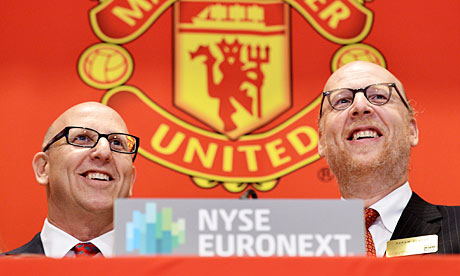
I came across Mariska’s post about Google Docs and its increasing popularity and possible threat towards Microsoft Office. Mariska points out that although Google Docs is becoming more popular, Microsoft is already an established name for corporations and its programs have a competitive edge. I agree with her view that Microsoft doesn’t need to worry too much about the upcoming Google Docs. This is because Microsoft has a higher buyer power, meaning many corporations choose Microsoft’s programs over other companies’. Microsoft also has a high supplier power as the company can exert influence on the industry and it also costs significantly more for corporations to switch away from Microsoft programs.
Microsoft was also smart to initiate Microsoft Office 365, where cloud technology comes into play so people can access their files on the Internet. This is like a cost leadership strategy, because it was a simple add-on but for all users. This was a simple yet effective way for the company to compete against what was mainly the most different aspect about Google Docs. Along with a popular interface; the addition of the option to save files online puts the company right back on top over Google Docs again.
(199)
Works Cited:
“Porter’s Generic Strategies.” QuickMBA.com. N.p., n.d. Web. 17 Nov. 2013.
Google vs Microsoft. Digital image. Http://www.navitec.co.uk/perch/resources/googlevsmicrosoft.jpg. N.p., n.d. Web. 17 Nov. 2013.



 Puma ranks third after Nike and Adidas in the sports apparel industry, but CEO Bjoern Gulden plans to shift the brand’s focus. He wants to reposition the brand from being a sports lifestyle company back to being a sports company. Although PUMA has been given lucrative sponsorship deals with athletes such as Usain Bolt, it has failed to have much success with brand recognition. Also, projected net profits for 2013 will fall below that of 2012’s.
Puma ranks third after Nike and Adidas in the sports apparel industry, but CEO Bjoern Gulden plans to shift the brand’s focus. He wants to reposition the brand from being a sports lifestyle company back to being a sports company. Although PUMA has been given lucrative sponsorship deals with athletes such as Usain Bolt, it has failed to have much success with brand recognition. Also, projected net profits for 2013 will fall below that of 2012’s.
 Furthermore, is has been a year since the club’s initial public offering and being listed on the New York Stock Exchange. It hopes to rise up to £248 million through a shares sale.
Furthermore, is has been a year since the club’s initial public offering and being listed on the New York Stock Exchange. It hopes to rise up to £248 million through a shares sale.
 The success of Samsung is due to the fact that they target both high and low income segments of the market, producing the high-quality Galaxy phones and low-cost smartphones targeted at developing countries such as India and China. I think that this is a huge advantage they have over leading competitors, Apple, as the American company only produces the iPhone. Having lived in Beijing all my life, I have seen the low-cost smartphones being used by people in the city and it is clear that Samsung has been successful at targeting those consumers. If Samsung keeps producing quality phones at a low price, it can capture more middle-income segments of the market and dominate phone markets in many developing countries. However, they would need to dig deeper in innovation to compete with the new cheaper iPhone 5C Apple has released.
The success of Samsung is due to the fact that they target both high and low income segments of the market, producing the high-quality Galaxy phones and low-cost smartphones targeted at developing countries such as India and China. I think that this is a huge advantage they have over leading competitors, Apple, as the American company only produces the iPhone. Having lived in Beijing all my life, I have seen the low-cost smartphones being used by people in the city and it is clear that Samsung has been successful at targeting those consumers. If Samsung keeps producing quality phones at a low price, it can capture more middle-income segments of the market and dominate phone markets in many developing countries. However, they would need to dig deeper in innovation to compete with the new cheaper iPhone 5C Apple has released.
